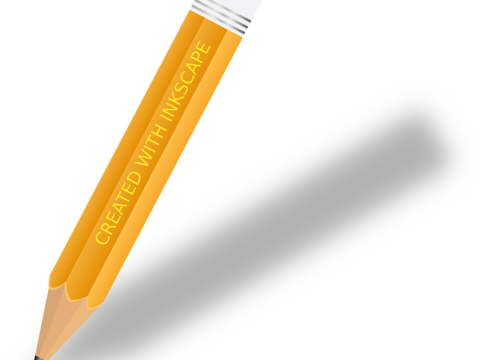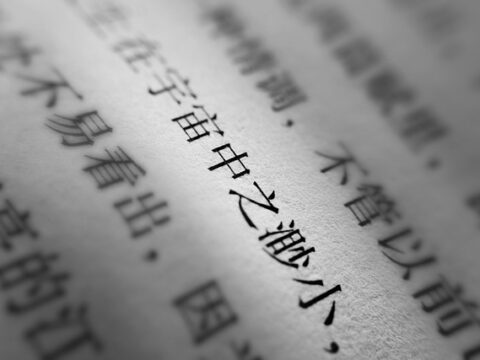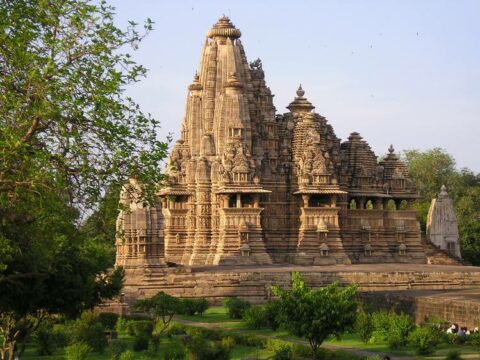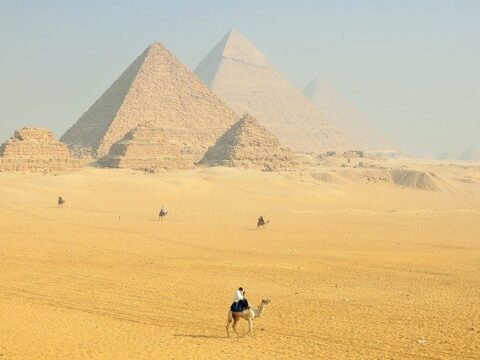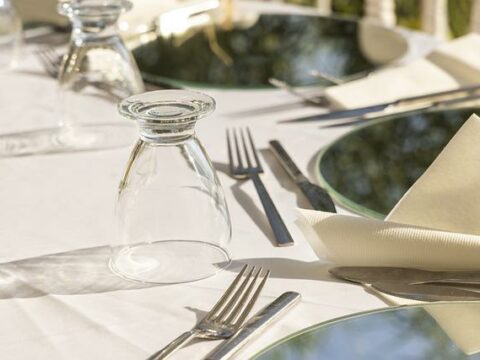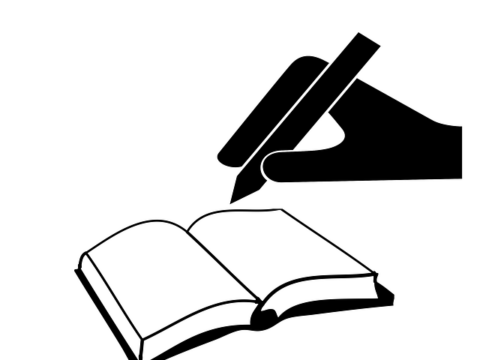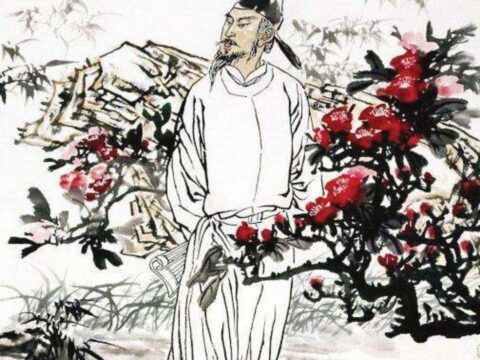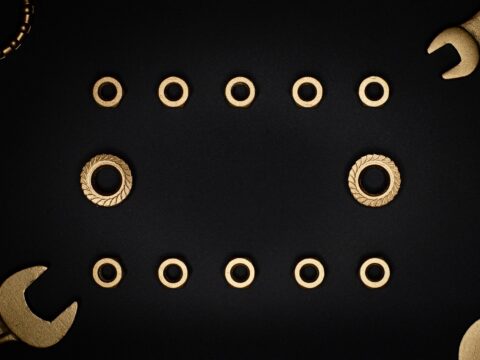Tag: Literature
Writing skills, how to take the right way to express emotions?
The importance of emotional expression in writing is often because the main line of writing emotion is not well grasped, and the quoted aphorisms and…
How to Choose the Right blog post, How many types of articles are there(4)
How to choose the theme of the article and how to enrich the content of blog articles, we can start with the most popular types…
How to Choose the Right blog post, How many types of articles are there(3)
How to choose the theme of the article and how to enrich the content of blog articles, we can start with the most popular types…
How to Choose the Right blog post, How many types of articles are there(2)
How to choose the theme of the article and how to enrich the content of blog articles, we can start with the most popular types…
How to Choose the Right blog post, How many types of articles are there(1)
How to choose the theme of the article and how to enrich the content of blog articles, we can start with the most popular types…
World Literature – Chinese Literature – Chinese Language Learning and Improvement
《寒(hán)窑(yáo)赋(fù)》原(yuán)文(wén)如(rú)下(xià): 天有不测风云(tiān yǒu bú cè fēng yún),人有旦夕祸福(rén yǒu dàn xī huò fú)。蜈蚣(wú gōng)百(bǎi)足(zú),行(xíng)不(bù)及(jí)蛇(shé);雄鸡(xióng jī)两翼(liǎng yì),飞(fēi)不过(bú guò)鸦(yā)。马(mǎ)有(yǒu)千(qiān)里(lǐ)之(zhī)程(chéng),无(wú)骑(qí)不能(bù néng)自(zì)往(wǎng);人(rén)有(yǒu)冲(chōng)天(tiān)之(zhī)志(zhì),非(fēi)运(yùn)不(bù)能(néng)自(zì)通(tōng)。盖(gài)闻(wén):人(rén)生(shēng)在(zài)世(shì),富(fù)贵(guì)不(bù)能(néng)淫(yín),贫(pín)贱(jiàn)不(bù)能(néng)移(yí)。 文章(wénzhāng)盖世(gàishì),孔子(kǒngzǐ)厄(è)于陈邦(yúchénbāng);武略(wǔlüè)超群(chāoqún),太公(tàigōng)钓(diào)于(yú)渭(wèi)水(shuǐ)。颜(yán)渊(yuān)命(mìng)短(duǎn),殊(shū)非(fēi)凶恶(xiōngè)之(zhī)徒(tú);盗(dào)跖(zhí)年长(niánzhǎng),岂是(qǐshì)善良(shànliáng)之辈(zhībèi)。尧帝(yáodì)明(míng)圣(shèng), 却(què)生(shēng)不肖(búxiào)之(zhī)儿(ér);瞽(gǔ)叟(sǒu)愚顽(yúwán),反(fǎn)生(shēng)大(dà)孝(xiào)之(zhī)子(zǐ)。张良(zhāngliáng)原(yuán)是(shì)布衣(bùyī),萧何(xiāohé)称谓(chēngwèi)县吏(xiànlì)。晏子身(yànzǐshēn)无(wú)五(wǔ)尺(chǐ),封(fēng)作(zuò)齐国(qíguó)宰相(zǎixiàng);孔明(kǒngmíng)卧(wò)居(jū)草(cǎo)庐(lú),能(néng)作(zuò)蜀汉(shǔhàn)军师(jūnshī)。楚(chǔ)霸(bà)虽(suī)雄(xióng),败(bài)于(yú)乌江(wūjiāng)自刎(zìwěn);汉王(hànwáng)虽(suī)弱(ruò),竟(jìng)有(yǒu)万(wàn)里(lǐ)江山(jiāngshān)。李(lǐ)广(guǎng)有(yǒu)射(shè)虎(hǔ)之(zhī)威(wēi),到(dào)老(lǎo)无(wú)封(fēng);冯(féng)唐(táng)有(yǒu)乘(chéng)龙(lóng)之(zhī)才(cái),一(yì)生(shēng)不(bú)遇(yù)。韩(hán)信(xìn)未(wèi)遇(yù)之(zhī)时(shí),无(wú)一(yí)日(rì)三(sān)餐(cān),及(jí)至(zhì)遇(yù)行(háng),腰(yāo)悬(xuán)三(sān)尺(chǐ)玉(yù)印(yìn),一(yí)旦(dàn)时(shí)衰(shuāi),死(sǐ)于(yú)阴(yīn)人(rén)之(zhī)手(shǒu)。 有(yǒu)先(xiān)贫(pín)而后(érhòu)富(fù),有(yǒu)老(lǎo)壮(zhuàng)而(ér)少(shǎo)衰(shuāi)。满腹(mǎnfù)文章(wénzhāng),白发(báifà)竟然(jìngrán)不(bù)中(zhōng);才(cái)疏(shū)学(xué)浅(qiǎn),少(shào)年(nián)及(jí)第(dì)登(dēng)科(kē)。深(shēn)院(yuàn)宫(gōng)娥(é),运(yùn)退(tuì)反(fǎn)为(wéi)妓(jì)妾(qiè);风(fēng)流(liú)妓(jì)女(nǚ),时(shí)来(lái)配(pèi)作(zuò)夫(fū)人(rén)。青(qīng)春(chūn)美(měi)女(nǚ),却(què)招(zhāo)愚(yú)蠢(chǔn)之(zhī)夫(fū);俊(jùn)秀(xiù)郎(láng)君(jūn),反(fǎn)配(pèi)粗(cū)丑(chǒu)之(zhī)妇(fù)。蛟(jiāo)龙(lóng)未(wèi)遇(yù),潜(qián)水(shuǐ)于(yú)鱼(yú)鳖(biē)之(zhī)间(jiān);君(jūn)子(zǐ)失(shī)时(shí),拱(gǒng)手(shǒu)于(yú)小(xiǎo)人(rén)之(zhī)下(xià)。衣(yī)服(fu)虽(suī)破(pò),常(cháng)存(cún)仪(yí)礼(lǐ)之(zhī)容(róng);面(miàn)带(dài)忧(yōu)愁(chóu),每(měi)抱(bào)怀(huái)安(ān)之(zhī)量(liàng)。时(shí)遭(zāo)不(bú)遇(yù),只(zhī)宜(yí)安(ān)贫(pín)守(shǒu)份(fèn);心(xīn)若(ruò)不(bù)欺(qī),必(bì)然(rán)扬(yáng)眉(méi)吐(tǔ)气(qì)。初(chū)贫(pín)君(jūn)子(zǐ),天(tiān)然(rán)骨(gǔ)骼(gé)生(shēng)成(chéng);乍(zhà)富(fù)小(xiǎo)人(rén),不(bù)脱(tuō)贫(pín)寒(hán)肌(jī)体(tǐ)。天(tiān)不(bù)得(dé)时(shí),日(rì)月(yuè)无(wú)光(guāng);地(dì)不(bù)得(dé)时(shí),草(cǎo)木(mù)不(bù)生(shēng);水(shuǐ)不(bù)得(dé)时(shí),风(fēng)浪(làng)不(bù)平(píng);人(rén)不(bù)得(dé)时(shí),利(lì)运(yùn)不(bù)通(tōng)。注(zhù)福(fú)注(zhù)禄(lù),命(mìng)里(lǐ)已(yǐ)安(ān)排(pái)定(dìng),富(fù)贵(guì)谁(shuí)不(bù)欲(yù)?人(rén)若(ruò)不(bù)依(yī)根(gēn)基(jī)八(bā)字(zì),岂(qǐ)能(néng)为(wéi)卿(qīng)为(wéi)相(xiāng)? 吾(wú)昔(xī)寓(yù)居(jū)洛(luò)阳(yáng),朝(cháo)求(qiú)僧(sēng)餐(cān),暮(mù)宿(xiǔ)破(pò)窖(jiào),思(sī)衣(yī)不(bù)可(kě)遮(zhē)其(qí)体(tǐ),思(sī)食(shí)不(bù)可(kě)济(jì)其(qí)饥(jī),上(shàng)人(rén)憎(zēng),下(xià)人(rén)厌(yàn),人(rén)道(dào)我(wǒ)贱(jiàn),非(fēi)我(wǒ)不(bù)弃(qì)也(yě)。今(jīn)居(jū)朝(cháo)堂(táng),官(guān)至(zhì)极(jí)品(pǐn),位(wèi)置(zhì)三(sān)公(gōng),身(shēn)虽(suī)鞠(jū)躬(gōng)于(yú)一(yì)人(rén)之(zhī)下(xià),而(ér)列(liè)职(zhí)于(yú)千(qiān)万(wàn)人(rén)之(zhī)上(shàng),有(yǒu)挞(tà)百(bǎi)僚(liáo)之(zhī)杖(zhàng),有(yǒu)斩(zhǎn)鄙(bǐ)吝(lìn)之(zhī)剑(jiàn),思(sī)衣(yī)而(ér)有(yǒu)罗(luó)锦(jǐn)千(qiān)箱(xiāng),思(sī)食(shí)而(ér)有(yǒu)珍(zhēn)馐(xiū)百(bǎi)味(wèi),出(chū)则(zé)壮(zhuàng)士(shì)执(zhí)鞭(biān),入(rù)则(zé)佳(jiā)人(rén)捧(pěng)觞(shāng),上(shàng)人(rén)宠(chǒng),下(xià)人(rén)拥(yōng)。人(rén)道(dào)我(wǒ)贵(guì),非(fēi)我(wǒ)之(zhī)能(néng)也(yě),此(cǐ)乃(nǎi)时(shí)也(yě)、运(yùn)也(yě)、命(mìng)也(yě)。 嗟(jiē)呼(hū)!人(rén)生(shēng)在(zài)世(shì),富(fù)贵(guì)不(bù)可(kě)尽(jìn)用(yòng),贫(pín)贱(jiàn)不(bù)可(kě)自(zì)欺(qī),听(tīng)由(yóu)天地(tiāndì)循环(xúnhuán),周(zhōu)而(ér)复(fù)始(shǐ)焉(yān)。 )()()()()()() 《寒(hán)窑(yáo)赋(fù)》译(yì)文(wén)如(rú)下(xià): 天气(tiānqì)有(yǒu)预测(yùcè)不(bù)到(dào)的(de)风(fēng)和(hé)云(yún),人(rén)也(yě)会(huì)有(yǒu)早晚(zǎowǎn)遇到(yùdào)的(de)灾祸(zāihuò)与(yǔ)喜事(xǐshì)。蜈蚣(wúgōng)有(yǒu)上百(shàngbǎi)只(zhī)足(zú),但(dàn)却(què)不(bù)如(rú)蛇(shé)行(xíng)走(zǒu)得(dé)好(hǎo)。家(jiā)鸡(jī)翅(chì)膀(bǎng)虽(suī)然(rán)很(hěn)大(dà),却(què)不(bù)能(néng)像(xiàng)鸟(niǎo)一(yí)样(yàng)飞(fēi)行(xíng)。马(mǎ)虽(suī)然(rán)能(néng)行(xíng)走(zǒu)千(qiān)里(lǐ)之(zhī)遥(yáo),但(dàn)没(méi)有(yǒu)人(rén)驾(jià)驭(yù)也(yě)不(bù)能(néng)自(zì)己(jǐ)到(dào)达(dá)目(mù)的(dì)地(dì)。人(rén)有(yǒu)远(yuǎn)大(dà)的(de)理(lǐ)想(xiǎng),但(dàn)缺(quē)乏(fá)机(jī)遇(yù)就(jiù)不(bù)能(néng)实(shí)现(xiàn)。…
World Heritage List (Top 10)
World Heritage meaning natural landscape. In a narrow sense, world heritage includes “world cultural heritage”, “World Natural Heritage”, “world cultural and natural heritage” and “cultural…
List of the top ten cultural heritages in the world
order appellation Address summary 1 Memphis and its cemetery pyramids Egypt It is located on northeast Egypt’s West Bank of the Nile River. Memphis was…
The food culture of some countries or regions in the world – > table culture – > etiquette and basic knowledge (brief summary)
Egyptian table manners If you are invited to dine in an Egyptian house, you should take off your shoes before entering the house, and you’d…
British food culture – > table culture – > etiquette and basic common sense (common sense ②)
1.The posture of sitting in the dining chair Remember: never touch the back of the chair. Sit up straight and bring food to your mouth…


